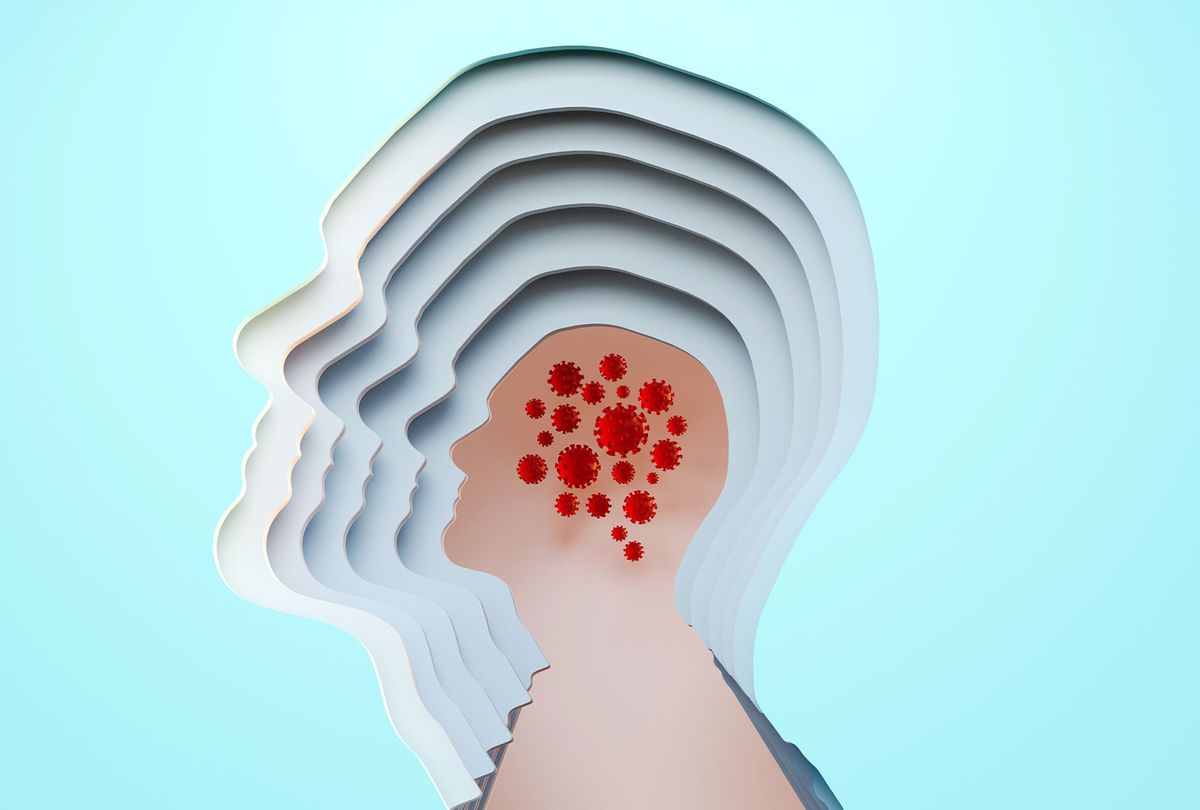An astonishing study found that roughly one out of three COVID-19 survivors were diagnosed with either a brain or psychiatric disorder within six months of contracting COVID-19.
The shockingly high proportion of brain and psychiatric disorders in COVID-19 patients suggests that 10 million Americans (out of the 30 million who have contracted COVID-19) could suffer mental health repercussions in the coming years. That prophesies an impending social crisis for which American society is unprepared.
In an article published in the journal The Lancet Psychiatry, researchers revealed that out of more than 230,000 COVID-19 patients (most of them from the United States), approximately one out of three (33.6%) developed either neurological or psychiatric issues. That number rose to 38.7% for patients who were hospitalized, 46.4% for those who had to be admitted to an intensive treatment unit and 62.3% for those who were diagnosed with encephalopathy (a term that refers to any disease which alters the structure or function of your brain).
Although the researchers were unable to determine how COVID-19 leads to many of these conditions, they established that the most common psychiatric conditions linked to a COVID-19 diagnosis were anxiety and depression. There were also statistically significant cases of strokes, dementia and other neurological conditions, although these were more rare.
"These results are worrying and suggest COVID-19 is associated with a higher rate of long term psychological and neurological complications than have been observed in other respiratory diseases such as influenza," Dr. Russell Medford, Chairman of the Center for Global Health Innovation and Global Health Crisis Coordination Center, told Salon by email. "In order to develop effective therapeutic, behavioral and public health interventions, this study emphasizes the urgent need for additional scientific and medical research to gain a better understanding of the underlying pathophysiological mechanisms of COVID-19 that may impact brain function and human behavior."
Dr. Georges Benjamin, executive director of the American Public Health Association, wrote to Salon that scientists already know that "this virus causes significant impairments to several bodily organs beyond the lungs. These commonly include the heart kidneys, blood system and brain. The exact mechanisms are not well understood but are under intensive study." When it comes to neurological effects, it had already been established that these ranged "from targeted functions like temporary but prolonged loss of taste and smell to prolonged episodes of headaches, debilitating physical fatigue or muscle weakness and difficulty with thinking clearly (brain fog)."
Want more health and science stories in your inbox? Subscribe to Salon's weekly newsletter The Vulgar Scientist.
He added that survivors would need supportive care going forward and pointed out that "there are some studies looking at the use of monoclonal antibodies to see if they can halt or reverse some of the neurological symptoms. Scattered reports of improvements after vaccination have also been reported but these are not conclusive."
"There are two separate issues: One is psychiatric and one is neurological," Dr. William Haseltine, a biologist renowned for his work in confronting the HIV/AIDS epidemic, for fighting anthrax, and for advancing our knowledge of the human genome, told Salon. After noting that the new paper focuses more on psychological issues than neurological ones, Haseltine observed that scientists have already learned that COVID-19 can hurt your brain.
"It isn't necessarily infection of the brain, but it is disturbance of the blood flow to the brain and the inflammation in the veins and arteries that serve the brain that leads to neurological damage," Haseltine explained. "There is considerable evidence that that occurs." He said that in addition to that, scientists know that "COVID-19 causes a lot of blood clots. It's almost equivalent to what happens to the heart-lung machine. And that is, it sends up a lot of micro clots into multiple organs. The most important one for us in this case is the brain. And you get a lot of micro-clotting in the brain for people who've had severe and serious COVID-19." He said that this is typical not just for SARS-CoV-2, the virus which causes COVID-19, but with many other viruses as well.

Shares